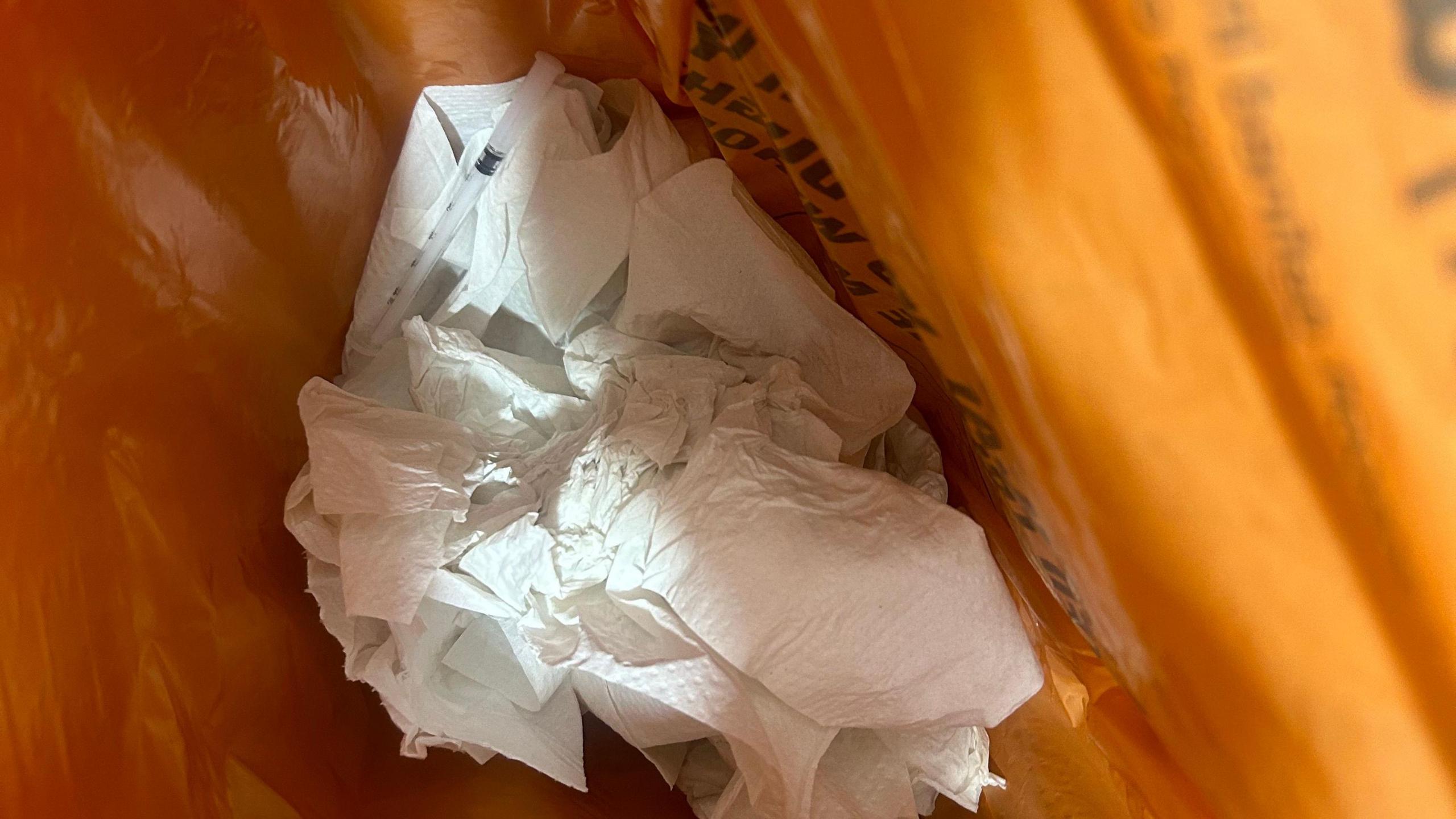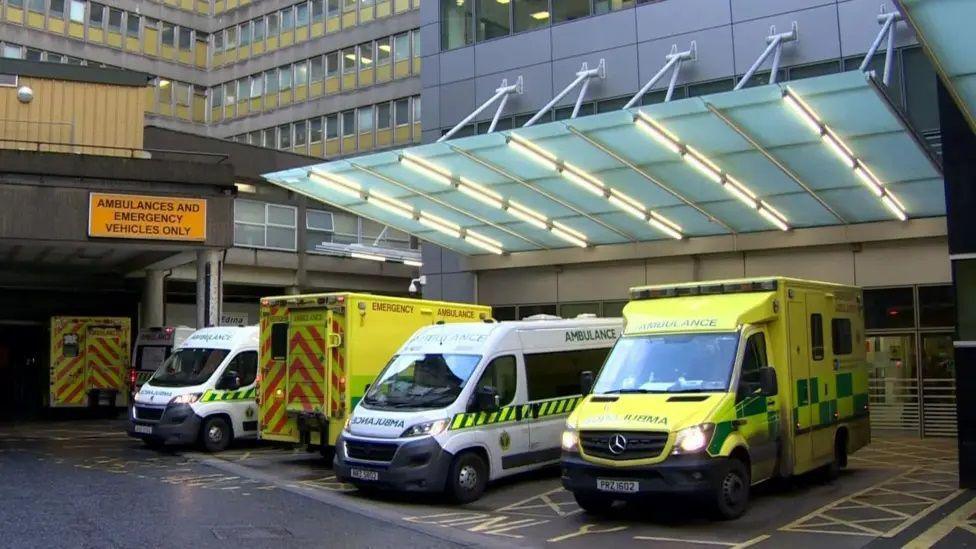Body-worn cameras being considered for hospital staff

- Published
There is a possibility staff at the Royal Victoria Hospital (RVH) in Belfast could wear body cameras following reports of drug dealing and anti-social behaviour on the site.
Alastair Campbell, a director at the Belfast Health Trust, told a special meeting of Lisburn and Castlereagh City Council (LCCC) that a pilot scheme for bodycams was being worked on.
It follows an investigation by BBC News NI that found there had been 22 reports of drug dealing at Northern Ireland's biggest hospital this year.
Councillors also heard that sniffer dogs are being used by the police to catch drug dealers in the Emergency Department (ED), according to the Local Democracy Reporting Service (LDRS).
'Disgusting' drug dealing in hospital condemned
- Published25 September 2024
Increase in anti-social behaviour
The BBC obtained the figures through a Freedom of Information (FOI) request to the Police Service of Northern Ireland (PSNI). They showed an increase in anti-social behaviour, including drug usage and drug dealing.
A BBC News NI reporter saw drug paraphernalia in a bin and a needle among hand towels in the disabled toilet, which is used as the baby change facility.

A needle was found in the emergency department toilets
'Disturbing' drug activity
At the LCCC meeting on Monday night, councillor Jonathan Craig said reports of illegal drug dealing at the ED were "very, very disturbing".
“There has also been ongoing attacks on staff and you do see that the trust has introduced a few measures around that," Craig said.
“But with regards to the drug dealing, there is CCTV within the facility, so I’ll ask an obvious question, how closely do you work with the likes of the PSNI around that?
“Because, I am sure that was not a one-off situation that somebody witnessed. It probably goes on much more regularly than any of us wish to believe.”

The Royal Victoria Hospital treats more than 80,000 people as inpatients and 350,000 people as outpatients every year
'Zero tolerance'
Councillor Gary Hynds said: "I now have residents in my constituency who would now be really concerned about attending A&E and we have to be able to reassure people on that."
Mr Campbell said there was a "zero tolerance policy" to such activity.
“We have regular meetings with the local superintendent. We have even had [sniffer] dogs in the ED on occasion in relation to drugs and around the other sites," he said.
“It is not just the ED, unfortunately it is all around the site of the hospital."
He described the situation as a "continuing problem".
“There is now a possibility of staff having body worn cameras and we are working on a pilot scheme for that," he said.
“There are more details of steps we are taking, but I would have to speak to councillors after the meeting.”
The trust has previously described drug usage and dealing at the site as a worrying trend, while the PSNI has said tackling drug dealing is a policing priority.